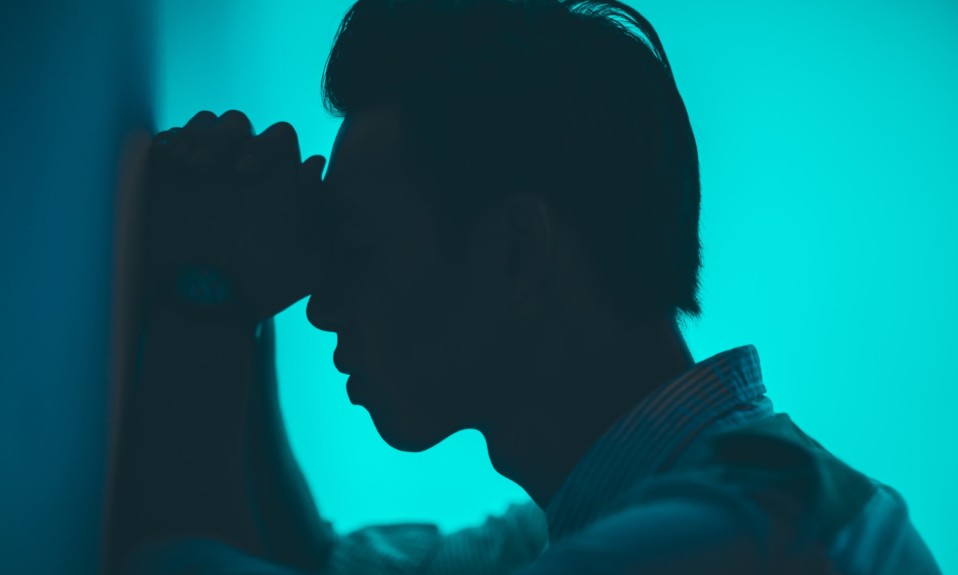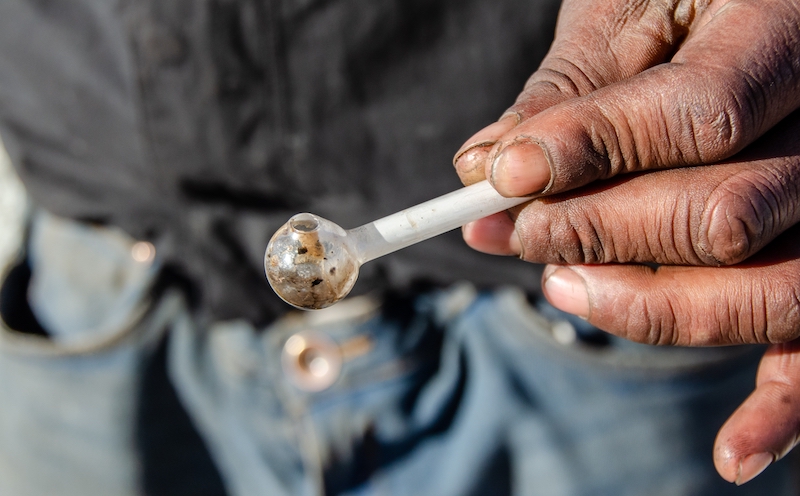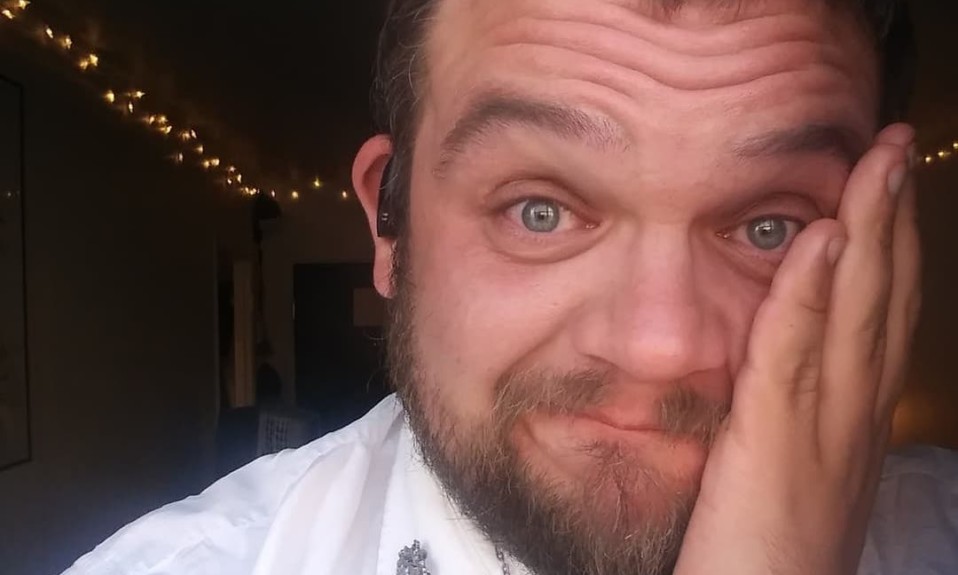Suffering with Parkinson’s and rapidly worsening alcoholism, Danny faced an uphill battle in putting his life back together
Editor’s note: “The Turning Point” is a column focused on the moment or moments when our subjects realized they needed to seek addiction treatment.
By Veronica L. Holyfield
The chase for increased dopamine transmission is what motivates the majority of alcoholics and other substance misusers—an endless cycle of ups and downs, of pleasure and pain. The brain and body can be the worst enemy of someone with addiction, and for those who have co-occurring brain disorders, the search for relief through dopamine activation is even greater. This is where we begin Danny’s story.
Danny had a relatively ordinary upbringing, he says, and while his dad was a heavy drinker, his childhood memories are full of laughter and connection. Though his youth wasn’t perfect, Danny feels that his life would have taken a completely different course if not for his first sip of alcohol as a young adolescent.
“The first time I was drunk, I was in middle school,” Danny says. “I guess my reason for starting to drink initially was I just liked it. Everybody was doing it—my good friends were doing it—and it felt good. I liked the feeling of being buzzed and getting drunk. But feeling like an idiot the next morning—I didn’t like that. And then when life got very hard, it didn’t feel as good. The drunken tears and the drunken depression was that much closer and easier to fall into.”
I can remember telling myself, ‘I’m not gonna drink for a month,’ or ‘a week,’ or ‘a day,’ and it never lasted that long. If I were to look at the day I went into treatment retrospectively, there were less than 10 days that I went without a drink during that decade.”—Danny
While Danny recalls being able to drink more than most of his friends, and even considering himself a heavy drinker through college and early adulthood, it wasn’t until the final 10 years of his drinking that he knew he had a problem.
“I can remember telling myself, ‘I’m not gonna drink for a month,’ or ‘a week,’ or ‘a day,’ and it never lasted that long,” he says. “If I were to look at the day I went into treatment retrospectively, there were less than 10 days that I went without a drink during that decade.”
Unlike a lot of alcoholics, Danny crossed the line from heavy drinker to full-blown alcoholic in the matter of an instant. About 10 years ago, Danny was diagnosed with early-onset Parkinson’s disease, a degenerative disorder of the central nervous system that slowly creates irreversible nerve damage in the brain.
A Devastating Diagnosis
At first, Danny observed a simple tremor in his left hand, something different from the alcohol withdrawal to which he had become accustomed. It more resembled the motion of rolling a small object between his thumb and index finger. When the tremor grew worse over time, he went to a neurologist, who ran a 10-minute exam and then hit him with the news that he had classic onset Parkinson’s disease.
“I was alone that day, just because my kids were tiny and my now ex-wife was at work, so I went to an appointment by myself,” Danny says. “I just remember sitting in my car outside the office like, Wow, I don’t know what to do, but I really want to stay positive. I’m not gonna let this thing beat me down. Then I went back to work.”

Danny’s marriage was already in a precarious position before his diagnosis, but his wife’s response to the news was catastrophic to his spirit, leaving him feeling more alone than ever. With a disintegrating marriage and a degenerative disease, Danny’s ability to control his drinking went from difficult to seemingly impossible. His life had completely changed, and his only way of coping was to numb it all.
“I didn’t want to think about Parkinson’s and how my body is failing, but the bigger reason for drinking is that I didn’t want to think about my kids living their lives and me missing out,” Danny says. “I don’t know the exact percentage, but something like 95% of people with Parkinson’s take some sort of antidepressants. It messes with your mind. It’s really hard to describe what it’s like to have a brain that doesn’t function like it’s supposed to.”
However, his drinking—not Parkinson’s—became the reason he wasn’t actually present in his children’s lives. Danny did things he swore he would never do, like drinking during the weekends when he had his kids, and he knew they were becoming more aware of his alcohol problem. While he didn’t want his kids growing up with a perpetually inebriated father, he was past the point of being able to make the decision to get help on his own.
“I can remember so many times I’d be puking in the sink, feeling absolutely horrible—I think I puked up blood a number of times—and just thinking to myself, like, I have to stop. It would last hours, and then I would be drinking again,” he says.
His dopamine levels were bottomed out due to his neurological disorder, he was drinking a half-handle of liquor a day, and his liver enzyme numbers were on the rise. In other words, things were looking bleaker by the day.
After two days of being unreachable by phone and not reaching out to his kids due to his constant intoxication, his ex-wife and his sister confronted him and said that he needed to go to treatment. Since his relationship with his children was in jeopardy, he was willing to do what he needed to in order not to lose them, too. But until people with addiction are able to make the decision to get help and stop using for themselves, the outcomes are poor. Danny was no different.
The Turning Point
“For a good chunk of the time that I was [in treatment], I just couldn’t wait to leave,” Danny says. “I was driving home from treatment and got a call from my ex-wife, who has always been a trigger for me. I was so incredibly depressed—I was sober one day and then I was back to drinking again.
“But then ‘the moment’ for me was on New Year’s Eve. My daughter called me, and she could tell something was wrong. My speech was slurred, and she was worried because she could tell my voice was off. My ex-wife came on the phone and very calmly told me that I really had a problem and needed to clean myself up. I guess, for me, that was the turning point.”
We all come with such different life circumstances in recovery, and it takes work to remain in a state of gratitude and happiness.”—Danny
Since New Year’s Day of 2021, Danny hasn’t had a drink. For him, 12-step meetings aren’t what provide him with what he needs in order to stay sober. It was picking up Annie Grace’s This Naked Mind, a book about overcoming alcohol use that was recommended to him by an alumnus from his treatment center. The book has helped him make sense of the progression of his addiction, how his Parkinson’s disease relates to his alcoholism, and how he wants to use the power of positivity to stay sober.
“We all come with such different life circumstances in recovery, and it takes work to remain in a state of gratitude and happiness,” Danny says. “Now, being able to talk to my kids about alcohol—I never got that advice from my parents, so a blessing is that I have the self-confidence around my kids, their friends and their friends’ parents. The relationship with my ex-wife is improving—and that was a mess before—so in general my ability to have sustained relationships is improving.”
While Danny still struggles with the fact that his Parkinson’s will continue to cause his brain and body to deteriorate, he is able to finally live in the present moment and accept the time he has and the blessings he has. He realized that none of us is ever guaranteed time.
Bottom photo: Charles “Duck” Unitas












